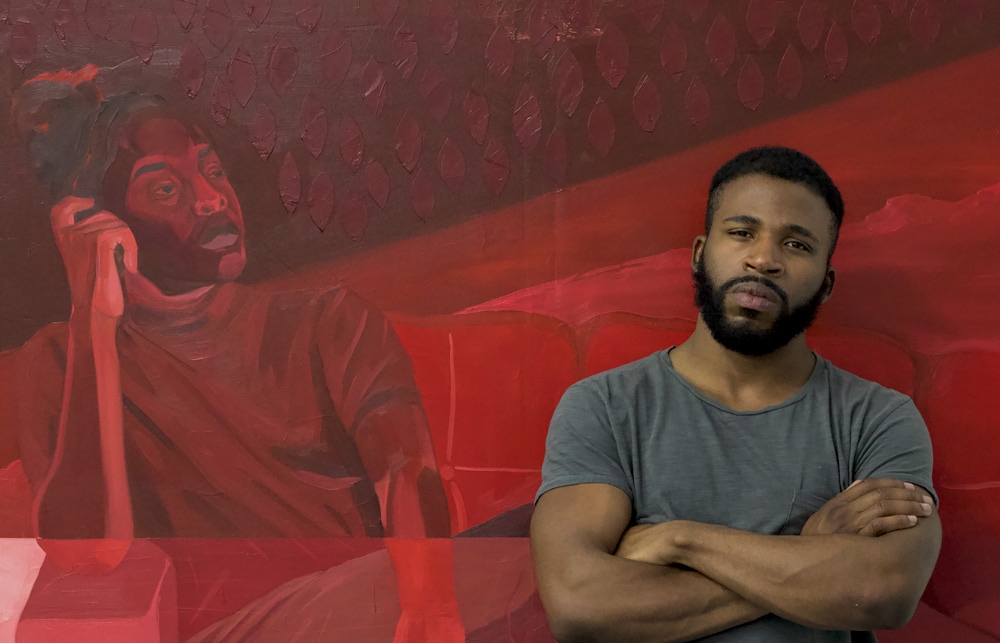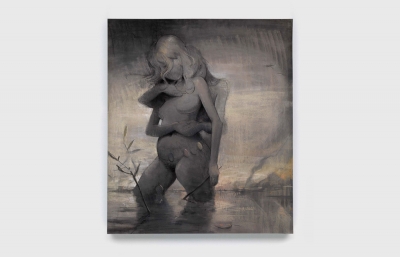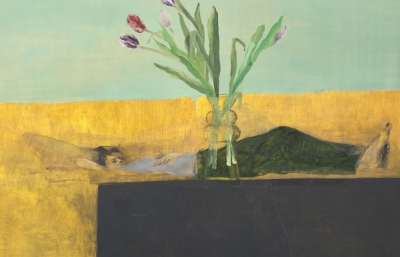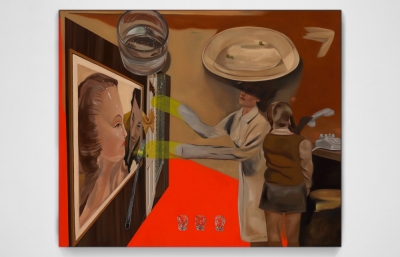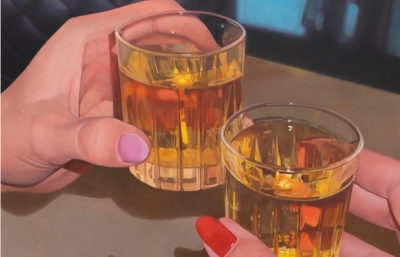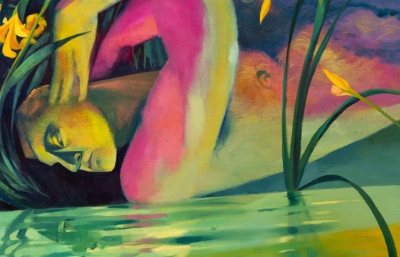I was talking to Eddie Martinez for a feature a couple issues ago, and we talked about this idea of constantly working, that his favorite artists are the people who are always making art. Like sketchbooks, paintings, sculptures, everything, and it sounds like you are somebody heading in that direction? You're not precious with everything, but you're just constantly making.
Oh, I'm totally that person. 110%. I'm curious what Eddie's reasoning is for that. For example, when I think about people who make art, I think about people who use their minds a lot. I'm very attracted to people's minds. I'm interested in how they use words and I love people who use colorful words. And so, in my mind, my favorite kinds of people are those who keep their minds constantly engaged because that's what art is to me. Someone's intellectual activity. You build with this person's insight and what they decided to solve. There are creative problem solvers in these paintings, so I'm interested in that. But I am also a hyper-producer.
What Eddie was talking about was how ideas, gestures and characters can re-emerge in your art, even 10 years after they left, because when you are subconsciously making all the time, it shouldn’t be a big deal to have these instinctual ghosts show up again.
And even in different contexts. Your idea of an emblem might change. No, I totally agree with that. I love making art every day, of being in here as much as I can. But I think, and I'm not sure this is true, I could be lying to myself, but I do think that my reasoning behind constantly producing work is not by happenstance. I feel like I'm looking for something, right? You see works by Kerry James Marshall, or Lisa Yuskavage or Mark Bradford, and they possess a sort of presence. And I think I'm looking for a painting that also offers that kind of presence to me as the maker, you know? So when I'm making these works, I'm looking for one, just that one that could be the one.











